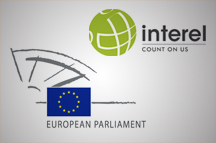 They predicted a political earthquake and it duly came on both sides of the Channel. Nigel Farage’s UKIP and Marine Le Pen’s National Front were only two of the headline acts that marked a turbulent night for most government parties in Europe, ranging from Sinn Fein’s breakthrough in Ireland to left wing radicals sweeping all before them in Greece and Spain. Even teflon Angela in Germany saw seats normally taken for granted by the CDU pinched by the anti-Euro Alternative for Germany party.
They predicted a political earthquake and it duly came on both sides of the Channel. Nigel Farage’s UKIP and Marine Le Pen’s National Front were only two of the headline acts that marked a turbulent night for most government parties in Europe, ranging from Sinn Fein’s breakthrough in Ireland to left wing radicals sweeping all before them in Greece and Spain. Even teflon Angela in Germany saw seats normally taken for granted by the CDU pinched by the anti-Euro Alternative for Germany party.
But will this anti-EU victory on the left and right have any effect on EU policy? For the most part, no. It has already become the norm in Brussels for legislation to be adopted in so-called first reading agreements, based on compromises found between the centre-right EPP group and the Socialists. So the much-heralded Grand Coalition in Brussels is in fact nothing new and for the vast majority of policy issues the pro-European left and right will continue to find agreement.
It is in the areas where the EPP and Socialists fundamentally disagree that the new reality of the Eurosceptic rise will start to play a part. Take for example climate and energy policy, where the Socialists, Liberals and Greens have called for three new ambitious targets for 2030 to ensure the EU still leads the global effort to curb climate change. The EPP however have argued that competitiveness of EU industry and the need to curb energy prices takes precedence and they support a single emissions reduction target. In the outgoing parliament, the left managed to achieve a narrow victory for its position but in a future parliament where the radical right are vehemently against costly climate legislation, their votes in plenary added to the EPP’s would prevent the left from getting its way. The TTIP trade negotiations with the US are another example, where the anti-TTIP position adopted by Le Pen and her followers, on top of existing unease from the Socialists at a lowering of EU standards, could jeopardise adoption of any future deal.
The Eurosceptics will have less of an influence on the first real task of the new parliament, electing the Commission president. The parliament and heads of state sitting in the European Council have already set out their opening positions. The parliament has kept to its pre-election pledge to allow the candidate of the winning party to have first shot at building a majority.
 The problem is that no one, including his own party, seem very convinced that Jean-Claude Juncker, the official EPP candidate, is the best man for the job. It has always seemed ironic that the innovative process unilaterally introduced by the parliament for each political party to select a candidate, threw up three Brussels veterans who struggled in the TV debates to differentiate themselves from each other. Compare that to the names circulating as possible outside candidates – the youthful prime ministers of Denmark and Finland, Helle Thorning-Schmidt and Jyrki Katainen, or many people’s favourite, the current IMF head Christine Lagarde. In true Brussels fashion there will no doubt be a deal done, which is likely to see the European Council get their man (or more likely woman) and the EP candidates offered consolation prizes elsewhere.
The problem is that no one, including his own party, seem very convinced that Jean-Claude Juncker, the official EPP candidate, is the best man for the job. It has always seemed ironic that the innovative process unilaterally introduced by the parliament for each political party to select a candidate, threw up three Brussels veterans who struggled in the TV debates to differentiate themselves from each other. Compare that to the names circulating as possible outside candidates – the youthful prime ministers of Denmark and Finland, Helle Thorning-Schmidt and Jyrki Katainen, or many people’s favourite, the current IMF head Christine Lagarde. In true Brussels fashion there will no doubt be a deal done, which is likely to see the European Council get their man (or more likely woman) and the EP candidates offered consolation prizes elsewhere.
Richard Steel
Senior Advisor, Interel












